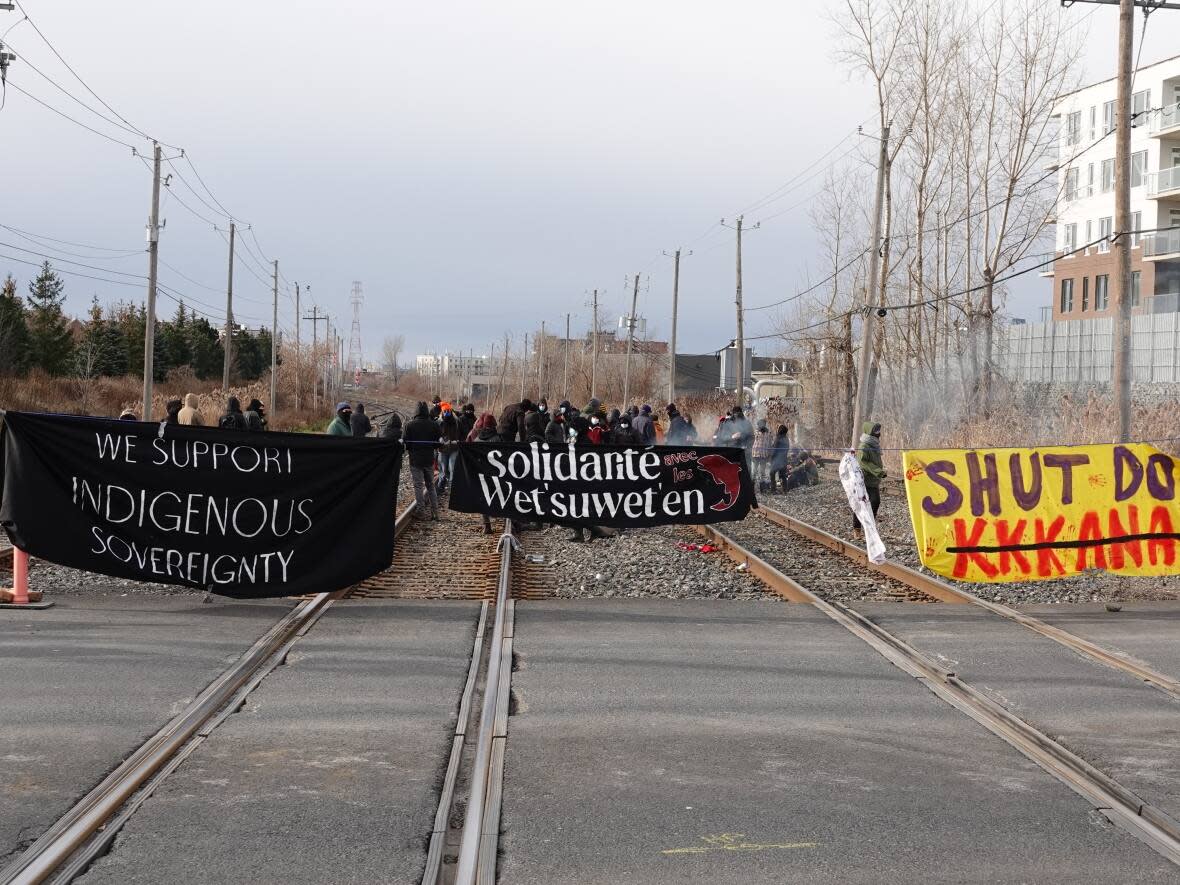Saint-Lambert railway blocked in solidarity with Wet'suwet'en

A group of protestors temporarily blocked a set of train tracks in Saint-Lambert, a city on Montreal's South Shore, causing cancellations and delays of some trains between Montreal and Quebec City on Saturday.
The group sent out a press release saying it set up the blockade in solidarity with the Gidimt'en clan of the Wet'suwet'en nation who have been actively opposing the construction of a natural gas pipeline in British Columbia since 2020.
The protestors described themselves as non-Indigenous "settler allies who stand in solidarity with Indigenous peoples who are defending their territories from colonial violence and industrial destruction."
In a statement to Radio-Canada, Via Rail said the tracks belong to Canadian National (CN) and confirmed that a protest had interfered with today's operations. A spokesperson said the company was focused on getting information to its customers and finding them alternative modes of transportation.
CN said it was aware of the protest on its network in Saint-Lambert and was following the situation closely.
Echo of 2020 blockades
Today's protest was similar to rail blockades that popped up across the country in 2020 as a show of support for Wet'suwet'en people, which shut down passenger and supply traffic for weeks.
At the time, many protestors opposed Coastal GasLink's pipeline project in British Columbia and were arrested. Recently, confrontations occurred between Indigenous land defenders and police — notably one involving the arrest of 15 people, including two journalists, at the Gidimt'en camp.
Coastal GasLink has signed deals with 20 First Nation elected band councils along the pipeline route, including the Wet'suwet'en. But the project has not won approval from some hereditary chiefs who say they are responsible for the wider traditional territories of the Wet'suwet'en.
The $6-billion, 670-kilometre pipeline would move natural gas from near Dawson Creek, in northeastern B.C., to a coastal LNG Canada export terminal in Kitimat.


